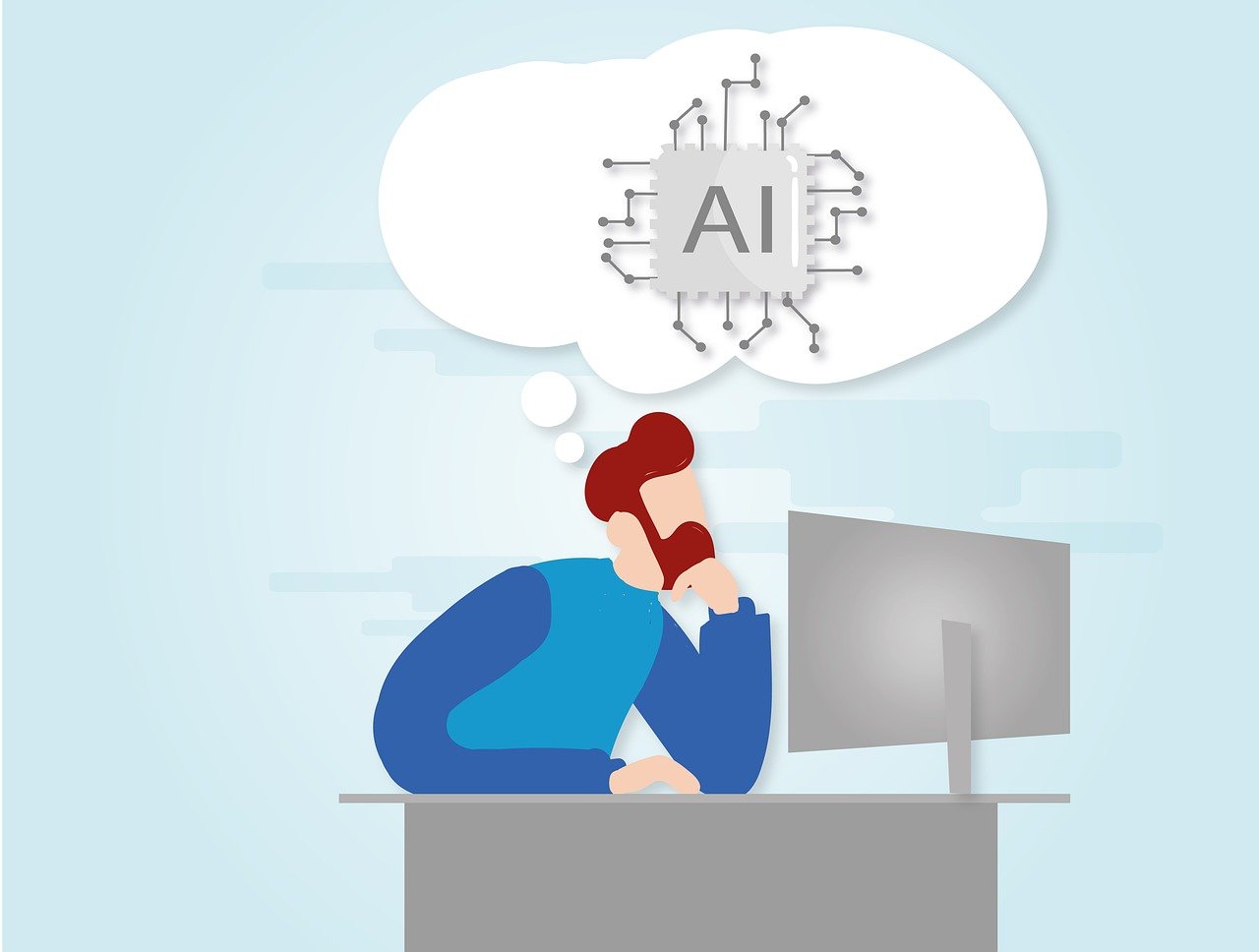In 2010, John was a diligent employee at a bustling corporate office, sifting through mountains of paperwork, manually inputting data, and attending endless meetings. Fast-forward to today, John has traded in his paperwork for digital files, his manual data entry for automated software, and his physical meetings for virtual ones. How did this transformation occur? The answer lies in the power of technological advancements and, more recently, Artificial Intelligence (AI).
According to PwC, 30% of jobs are at potential risk of automation by the mid-2030s, but on the flip side, AI is also creating new job opportunities and transforming existing ones for the better. This brings us to an intriguing question: “What will the future of work look like, and what role will AI play in shaping it?”
In this blog post, we’ll look at the impact of AI on the future of work. We’ll explore its role in the evolution of work, changing the job roles and skills required, and, most importantly, how we can prepare ourselves for this inevitable future.
The Evolution of Work
The world of work has undergone a transformation shift over the years. We’ve come a long way from the industrial era when manual labor was the backbone of production. Now, the scene has drastically changed. Machines and automated systems have taken over, increasing efficiency and labor productivity.
Today, we see another significant shift – the introduction of Artificial Intelligence (AI) into the workplace. AI is reshaping how we work. From automating routine tasks to using data analytics and aiding complex decision-making processes, AI is making its presence across industries. According to McKinsey, about 50% of companies have adopted AI in at least one business function, signifying its growing influence.
However, this evolution hasn’t been without its share of apprehensions. On one hand, there’s the fear of job displacement. After all, if machines can do the work of human beings, what happens to human employees? On the other hand, there’s the hope that AI will create new job roles and free humans for more creative, high-value tasks. A report by Gartner suggests that while AI will eliminate 1.8 million jobs by 2020, it will also create 2.3 million new ones.
The evolution of work driven by AI is a double-edged sword. It brings both challenges and opportunities. With the workplace of tomorrow ever-evolving, it’s crucial to understand and prepare for the changes that lie ahead. It’s not about machines versus humans; it’s about how we can work together with AI to build a better future of work.
The Role of AI in Shaping the Future of Work
Artificial Intelligence (AI) is becoming pivotal in transforming our workspaces. From automating tasks to facilitating remote work, here’s how AI is shaping the future of work:
1. Automation of Routine Tasks
Routine jobs are often deemed prime candidates for automation. Think of tasks such as data entry, assembly, telemarketing, and even some accounting functions – these are all examples of work that can be automated using AI. As per a report by McKinsey, these technologies have the potential to free up approximately 25% of work time. This doesn’t necessarily mean job losses but rather a shift in the nature of jobs. Employees can focus on more complex tasks, enhancing productivity and efficiency.
2. AI in Decision-Making Processes
With machine learning and predictive analytics, AI can analyze vast amounts of data to provide valuable insights and make accurate predictions. This can help businesses make strategic decisions, reduce human error, and increase efficiency. According to the World Economic Forum, generative AI can significantly enhance creativity and decision-making in future jobs.
3. Remote Work and AI
The advent of AI has also made remote work more feasible and efficient. AI-powered tools can help manage workflows, schedule meetings, and monitor employee productivity. In the era of remote work, these tools can help maintain team collaboration and ensure work continuity.
4. AI in Recruitment and HR
AI is revolutionizing the recruitment and HR industry with AI technologies. AI can automate various aspects of the recruitment process, from screening resumes to scheduling interviews and providing insights about candidate suitability. This saves time and helps in making objective decisions, reducing bias in the hiring process.
AI’s Impact on Job Roles and Skills

Artificial Intelligence (AI) has brought about a seismic shift in the world of work. While some jobs are at risk of automation, new ones are emerging, requiring different skills.
A study by Pew Research suggests that jobs held by low-wage workers or those without a degree are more exposed to AI. The same study also found that 19% of U.S. workers are in jobs with high exposure to AI, indicating significant changes in the job market.
On the other hand, experts predict that AI and machine learning will create more occupations than they replace. A report by Innopharma Education anticipates 20-50 million new jobs due to AI, ranging from AI specialists to data scientists and analysts and even roles we can’t yet imagine.
So, what are the skills required in this AI-driven workplace? For starters, technical skills related to AI and machine learning will be in high demand. However, soft skills such as critical thinking, creativity, and emotional intelligence will be equally important. These are skills that machines cannot replicate.
Yet, the question remains: “Are we prepared for these changes?” As AI reshapes our workspaces, individuals and organizations must adapt and upskill.
Preparing for the Future
Individuals and businesses must adjust as we stand on the brink of an AI-driven future. Here are some ways we prepare ourselves for the changes ahead:
1. Individuals: Embrace Continuous Learning
The job market is evolving, and so must our skills. With AI automating routine tasks, there will be a greater demand for skills that machines can’t replicate. Think creativity, emotional intelligence, and problem-solving. So, how can one acquire these skills? Through continuous learning. Online platforms like Udemy and LinkedIn Learning have courses in lots of areas. Learning doesn’t stop with a degree; it’s a lifelong journey.
2. Businesses: Invest in Training and Upskilling
For businesses, the key to navigating an AI-driven future lies in investing in their most valuable asset: their employees. By providing training and upskilling opportunities, companies can ensure their workforce is ready to tackle the challenges and opportunities that AI brings.
The future is not something we enter; the future is something we create. And as we step into this AI-driven era, Individuals and Businesses need to create a future where technology and human potential work hand in hand. It’s time to embrace change, adapt, and keep learning.
Conclusion
AI’s impact on the future of work is profound, reshaping job roles, automating routine tasks, and creating opportunities for new ones. AI’s potential to transform the workplace is unparalleled.
However, it’s not about replacing humans but augmenting human capabilities. It’s about freeing us from mundane tasks and enabling us to focus on what we do best – think creatively, solve complex problems, and connect with others on a deep emotional level.
But with great power comes great responsibility. As we embrace AI, individuals and businesses must prepare for the changes ahead. Continuous learning, training, and upskilling around AI are vital in navigating this new era.
The future of work is here, and it’s intertwined with AI. Embrace the change, keep learning, and be prepared.
⸻ Author Bio ⸻

Carol is the founder of mccagues.com. With her Master’s in Entrepreneurship Marketing and years of experience in Digital Marketing, She enjoys helping small businesses grow and develop by sharing productivity, automation, and AI strategies.












